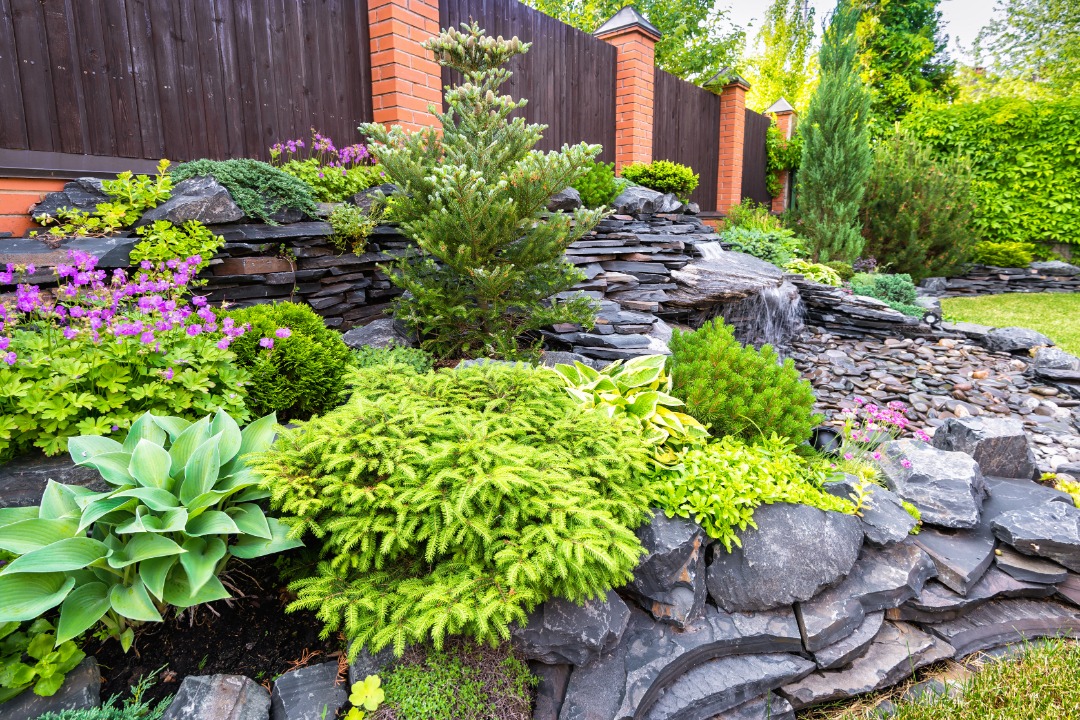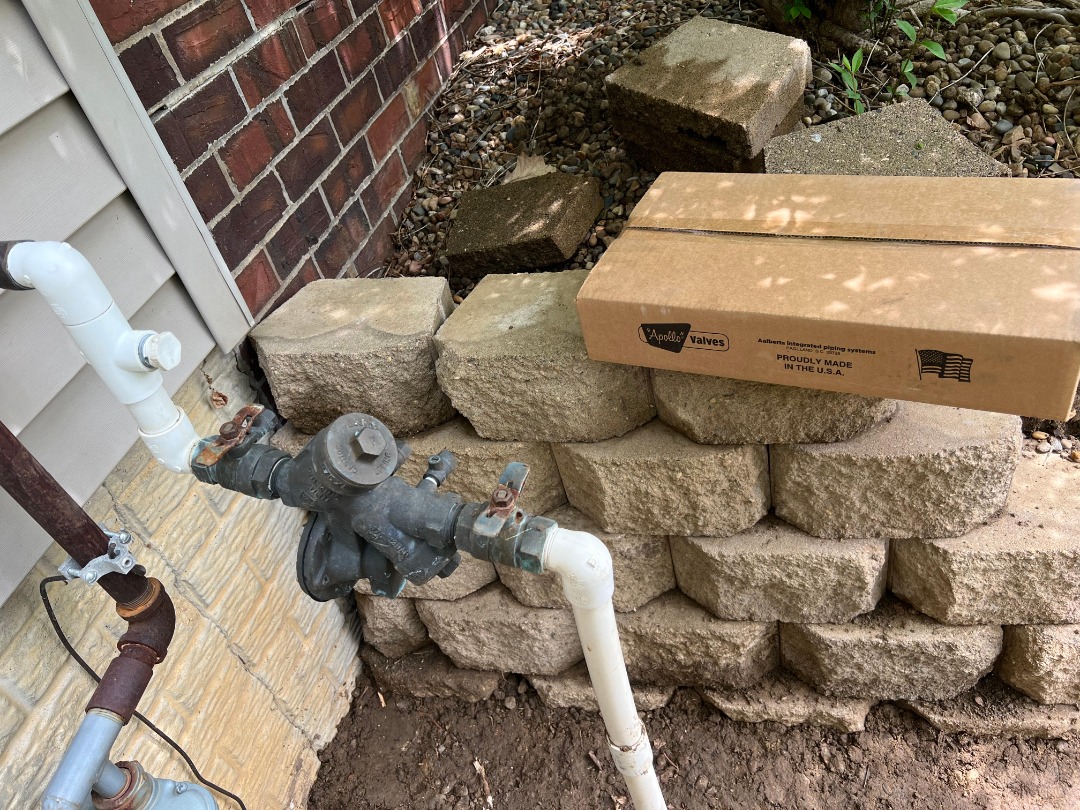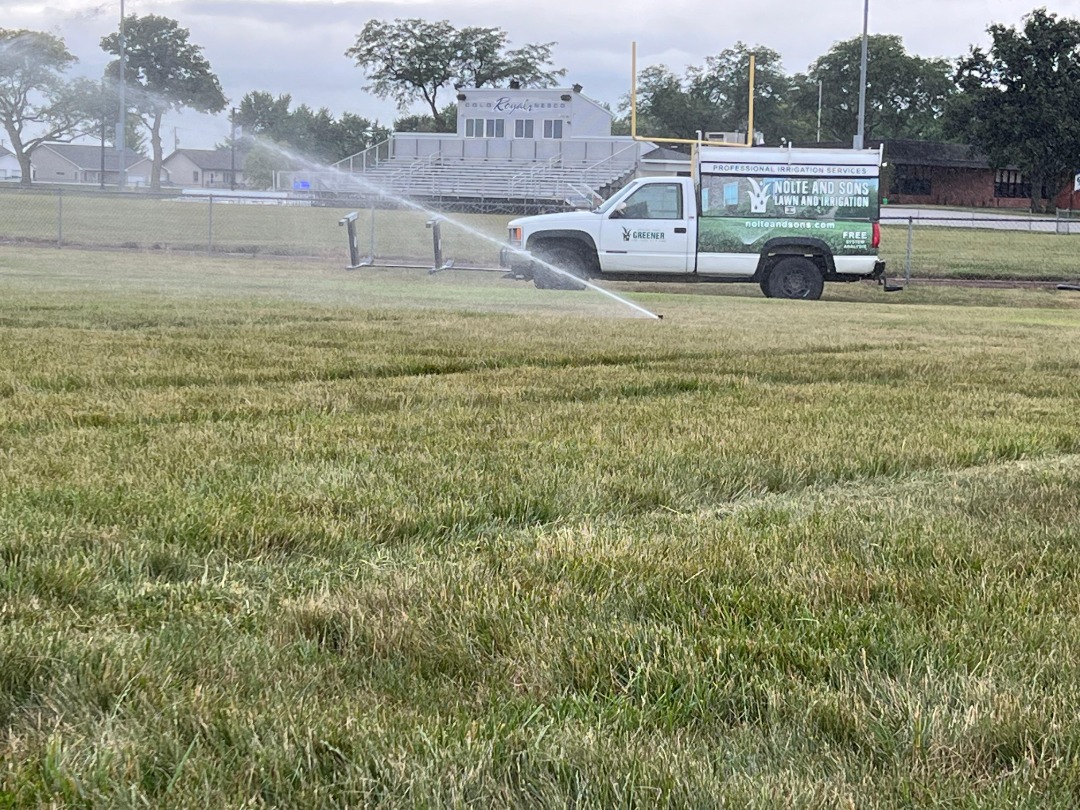What is Rainscaping?
What Are the Benefits of Rainscaping?
Rainscaping is a sustainable approach to landscaping that involves managing stormwater runoff. Stormwater can be repurposed rather than just flowing into storm drains or waterways. Rainscaping techniques can slow the water down and use natural elements like stones, splash blocks, and downspouts, or they can be utilized in heavily planted areas. The water can be spread out, collected, or soaked in through specific methods, whatever method you prefer for your garden. Through any of these methods, rainscaping can improve the water quality of your garden. By using natural rainwater devoid of runoff chemicals and fertilizer that may be present in other water sources, your plants’ health can improve. It can also create habitats for the wildlife in your garden like birds, insects, and other small mammals. If your rainscaping looks nice and functions properly, it can increase the property value of your home. Lastly, it can improve your soil health. The water infiltration process from rainscaping can enrich the soil with nutrients and absorb 30% more water than regular lawns. This prevents muddy puddles, soggy soil, and wasted water.What Are Some of the Drawbacks of Rainscaping?
Like everything in life, there are some drawbacks to rainscaping you should be aware of. Rain-scaping features like rain gardens, bioswales, and permeable pavements can be expensive. This is due to the initial installation costs. If you have a large property, this can make it quite pricey. It can also require regular upkeep to continue to work properly. To keep the system in working order, you must remove debris, replace plants, and clear out bogged drainage systems. Many people may not have the time to maintain their rainscaping system. Another additional problem that can occur if your rainscaping system is not properly maintained is the potential for mosquito breeding and soil contamination. If you don’t consistently monitor your rainscaping system, it can fall into disrepair. Not managing your rainscaping system effectively, especially after heavy rainfall, can lead to soil erosion and flooded yards. However, if you stay on top of your rainscaping duties you can nip any issues that arise in the bud.
How Can You Integrate Rainscaping for Your Landscape?
Implement a Rainwater Harvesting System
While you can implement a winter harvesting system in several ways, one of the best (and most common) ways is to install a rooftop catchment system. You can do that by installing a gutter and downspouts to your home. Then, these channels can be attached to a water storage system, like cisterns or rain barrels. These kinds of rain barrels or cisterns can come in various sizes, depending on how much rainfall you get in your area. If your area receives heavy rainfall, you could get 50-gallon rain barrels or rain barrels that can hold well over 9,000 gallons. Another way you can aid your rainwater collection system is through green roofs. Green roofs help filter and store rainwater. This reduces runoff and can even improve overall insulation for your home.
Want a rainwater harvesting system that isn’t so close to home? Consider a rain garden if you’re looking for a rainscaping method that is more natural and offers a nice, serene atmosphere. Rain gardens help improve water quality, reduce flood risks by absorbing more water than regular lawns, help conserve water, create a healthy ecosystem for wildlife, and help enhance the health of your soil. By working with an experienced professional, you can install a rain garden. There are many things to consider when you design the layout of a rain garden, let alone the manual labor and technical skills needed. Once your rain garden is completed, it’ll leave you with a sustainable rainscaping element that will help promote water conservation.
Easy Rainscaping Methods You Can Apply to Your Yard
You don’t need a massive renovation to start rainscaping. Several easy and low-cost methods you can begin with can still make a noticeable difference in your water conservation efforts. One simple way is to redirect your downspouts so that they drain into areas with rich vegetation instead of paved surfaces or sidewalks. This gives your plants access to more water while preventing runoff from reaching the storm drains. You can also use splash blocks or rock channels to help guide water naturally through your landscape and reduce erosion.
Another approach is to use mulch and compost in your garden beds. These materials help soak up moisture and hold it in the soil for longer, giving your plants time to use the water before it evaporates. Strategic planting of native grasses, shrubs, and perennials also helps absorb rainfall and reduces the need for frequent watering. If you’re looking to go a step further, installing permeable pavers in walkways or patios allows water to soak into the ground instead of running off, making your yard more eco-friendly without compromising design.

Why You Should Consider Professional Rainscaping Help
In-depth and Up to Date Rainscaping Knowledge
When it comes to planning a functional and efficient rainscaping system, experience truly matters. A professional will have the expertise to assess your property’s unique layout, soil type, and drainage patterns to create a design that looks good and performs effectively. From calculating water flow to choosing the right plants and materials, their up-to-date knowledge ensures you make informed decisions that align with your local environment and climate. Professionals also stay informed about new rainscaping techniques, local regulations, and sustainability standards. This helps you avoid costly mistakes resulting from DIY errors or outdated advice. With a professional’s insight, you can be confident that your rainscaping solution won’t just meet your goals for conservation—it’ll exceed them.Access to a High Quality Team and Supplies
Rainscaping projects often require more than just design. You’ll also need access to the right tools, materials, and people to make it happen. Working with a professional means gaining a skilled team that knows how to efficiently carry out every step of the process—from excavation to plant installation to drainage setup. They bring experience and the proper equipment to get the job done right the first time. Moreover, professional landscapers often have connections with suppliers and can source higher-quality materials that aren’t always available to the average homeowner. This means better plants, durable stones or pavers, and eco-friendly options for every project element. In the long run, hiring a pro can save you time, money, and stress, giving you a rainscaping system built to last.
Conclusion:
Rainscaping is more than just a trend—it’s a practical, sustainable way to care for your landscape while conserving one of Earth’s most precious resources: water. Whether you’re simply redirecting downspouts or investing in a full-scale rain garden, every step toward rainscaping brings lasting benefits. With healthier soil, lower water bills, and a more beautiful yard, it’s easy to see why more homeowners are switching.
With professional help from Nolte & Sons, you can rest assured your rainscaping system will be tailored to your yard and built to stand the test of time. Interested in our sustainable services? Contact us today to get the healthy and happy landscape you deserve.
SERVICES
- Landscaping
- Irrigation
- Lawn Care
- Patios
- Fertilizer
- Lawn Mowing
- Pest Control
- Tree Services
- Fire Pits
- Mulch
- Sod
- Snow Removal
- Native Seeding & Planting
- Soil Quality Restoration
- Landscape Edging
- French Drains
- Retaining Walls
- Pavers
- Lawn Dethatching
- Aeration
- Landscape Design
- Landscape Lighting
- Tree Trimming
- Artificial Turf
- Leaf Removal
SERVICE AREAS
Ankeny
Des Moines
Urbandale
West Des Moines
Johnston
Waukee
Ames
Altoona
Clive
Grimes
Pleasant Hill
Bondurant
Polk City
Windsor Heights
Adel
Huxley
Saylorville
Elkhart

